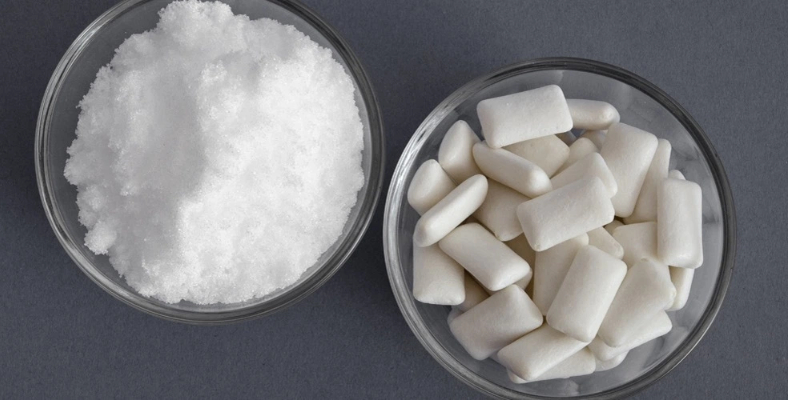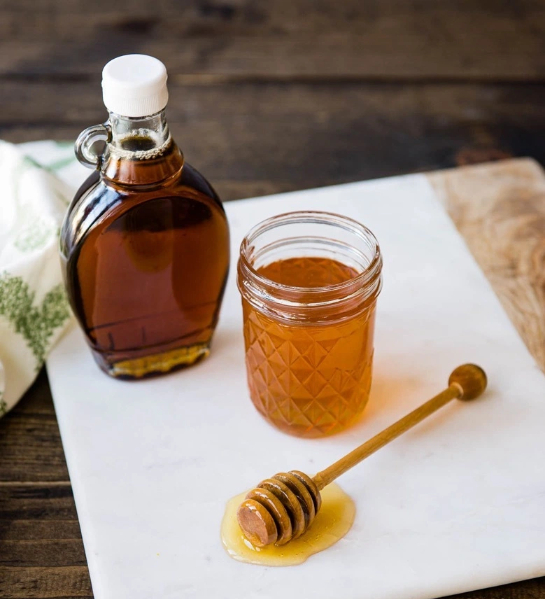Views: 222 Author: Sara Publish Time: 2025-11-19 Origin: Site








Content Menu
>> Dietary Fibers with Sweetening Properties
● Considerations for Choosing Sweeteners
>> Environmental and Ethical Considerations
● FAQ
>> 1. What makes natural sweeteners different from artificial ones?
>> 2. Are sugar alcohols safe to consume?
>> 3. Can sweeteners help with blood sugar management?
>> 4. Which sweeteners are best suited for baking?
>> 5. Do natural sweeteners provide any health benefits beyond sweetness?
Choosing the best sweetener for your needs involves understanding various options currently available, including natural sweeteners, functional polyols, and sweeteners combined with dietary fibers. With a growing focus on health and wellness, consumers and manufacturers seek alternatives to traditional sugar that offer sweetness without adverse health effects. This article guides you through the characteristics, benefits, and considerations associated with these sweeteners, enabling informed decisions for food, beverage, and healthcare applications.

Natural sweeteners are derived from plants and other natural sources. Examples include stevia, monk fruit extract, honey, agave nectar, maple syrup, and coconut sugar. These sweeteners typically contain fewer calories than regular sugar and often have lower glycemic indexes, making them suitable for those managing blood sugar levels.
- Stevia: Extracted from the leaves of the Stevia rebaudiana plant, stevia is a zero-calorie sweetener that is 150–320 times sweeter than sugar. It does not raise blood glucose levels, making it ideal for diabetics and calorie-conscious consumers. Stevia may have a slight bitter aftertaste in some formulations.
- Monk Fruit: Derived from the fruit of Siraitia grosvenorii, monk fruit sweetener is also calorie-free and 100–250 times sweeter than sugar. It contains antioxidants called mogrosides, which may provide anti-inflammatory and anti-diabetic benefits, without reported side effects.
- Honey: A natural source of energy that contains antioxidants and antibacterial properties. It has a higher caloric content but offers additional nutrients compared to refined sugar.
- Agave Nectar: Known for its low glycemic index, agave nectar is sweeter than sugar, so smaller amounts are needed. It also contains small amounts of vitamins and minerals and serves as a vegan alternative to honey.
- Maple Syrup: Rich in minerals like manganese and zinc, maple syrup provides antioxidants and exhibits anti-inflammatory effects. It has a moderate glycemic response.
- Coconut Sugar: Harvested from coconut palm sap, coconut sugar has a caramel-like flavor and contains minerals and antioxidants. It is appreciated for its sustainability.
Natural sweeteners often have additional bioactive compounds, antioxidants, and trace nutrients not found in refined sugar, contributing positively to overall health. However, moderation is encouraged as some natural sweeteners still contain sugars or calories.
Functional polyols, commonly known as sugar alcohols, include erythritol, xylitol, maltitol, and sorbitol. They offer sweetness with fewer calories than sugar and have a reduced impact on blood glucose.
- Erythritol: Nearly calorie-free and well-tolerated by most people, erythritol provides about 60-70% of the sweetness of sugar. It is absorbed but not metabolized, so it has minimal effects on blood sugar and dental health benefits.
- Xylitol: With sweetness almost equivalent to sugar and roughly 40% fewer calories, xylitol is particularly known for its dental benefits, such as reducing cavity-causing bacteria.
- Maltitol and Sorbitol: Often used in sugar-free candies and baked goods, these polyols are sweeter than sugar but may cause digestive discomfort if consumed excessively.
Polyols also provide functional advantages in production, such as moisture retention and texture improvement, making them favorable for various food and beverage applications.
Certain dietary fibers combined with sweetening agents can enhance health benefits while providing mild sweetness.
- Polydextrose: A soluble fiber often used as a sugar replacer that contributes to digestive health by promoting gut microbiota.
- Fructooligosaccharides (FOS): Naturally occurring fibers that have a slight sweetness and act as prebiotics, supporting bowel function and immune health.
These fibers enable the creation of sweetened products that support digestive wellness while reducing available calories.

- Blood Sugar Control: Sweeteners like stevia, monk fruit, and many polyols have low to zero glycemic indices, making them suitable for individuals with diabetes or those on low-carb diets.
- Caloric Intake: Natural sweeteners and polyols generally provide fewer calories than sucrose, supporting weight management efforts.
- Digestive Effects: Excessive consumption of some polyols may result in gastrointestinal discomfort, so intake should be monitored.
- Nutritional Value: Certain natural sweeteners include antioxidants, vitamins, and minerals, potentially offering more health benefits compared to refined sugar.
- Natural sweeteners may have distinctive tastes or aftertastes, such as the slight bitterness of stevia.
- Polyols tend to have a cooling mouthfeel and are often used in sugar-free confectionery.
- The stability of sweeteners under heat varies; some are well-suited for baking, while others excel in beverages or cold applications.
- Functional properties such as moisture retention and texture modification are important for food manufacturers.
- Some natural sweeteners like coconut sugar are praised for sustainability.
- Vegan options like agave nectar provide alternatives for consumers with specific lifestyle preferences.
Selecting the best sweetener is a multifaceted decision grounded in health goals, taste preferences, application needs, and sustainability considerations. Natural sweeteners such as stevia and monk fruit offer potent sweetness with minimal calories and potential health benefits, ideal for those seeking natural, plant-based options. Functional polyols provide reduced-calorie sweetness with additional benefits for dental and digestive health, although they require careful consumption to avoid digestive discomfort. Sweeteners combined with dietary fibers contribute to gastrointestinal wellness alongside sweetness. Understanding these options empowers manufacturers and consumers alike to choose sweeteners that align with their needs and values.

Natural sweeteners are derived from plants and whole food sources, often containing bioactive compounds, antioxidants, and nutrients. Artificial sweeteners are chemically synthesized and may carry concerns about long-term health effects.
Yes, sugar alcohols like erythritol and xylitol are generally recognized as safe but can cause digestive issues like bloating or laxative effects if consumed in large quantities.
Many natural sweeteners and polyols have low glycemic indices, making them suitable for diabetics and those monitoring blood sugar by minimizing spikes.
Polyols such as maltitol and erythritol perform well in baked goods, retaining moisture and texture, while some natural sweeteners may degrade or lose sweetness at high temperatures.
Yes, natural sweeteners like monk fruit and stevia contain antioxidants and anti-inflammatory compounds that may support overall health beyond calorie reduction.
[1](https://3natives.com/your-guide-to-the-benefits-of-natural-sweeteners/)
[2](https://www.foodandnutritionjournal.org/volume13number1/the-battle-of-natural-sweeteners-a-comprehensive-guide-to-monk-fruit-and-stevia/)
[3](https://www.healthline.com/nutrition/healthy-natural-sweeteners)
[4](https://www.obesityaction.org/resources/the-great-debate-between-artificial-natural-sweeteners/)
[5](https://www.uhhospitals.org/blog/articles/2022/08/are-natural-sweeteners-healthier-than-sugar)
[6](https://pmc.ncbi.nlm.nih.gov/articles/PMC9519493/)
[7](https://www.goodrx.com/well-being/diet-nutrition/natural-sweeteners)
[8](https://www.mdanderson.org/cancerwise/artificial-sweeteners-vs--natural-sweeteners--which-one-is-better.h00-159774867.html)
[9](https://livingwell.tamu.edu/sweeteners/)
[10](https://health.clevelandclinic.org/best-and-worst-sugar-substitutes)
